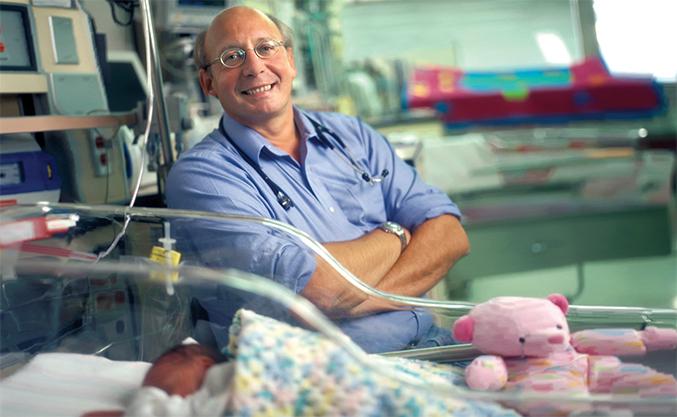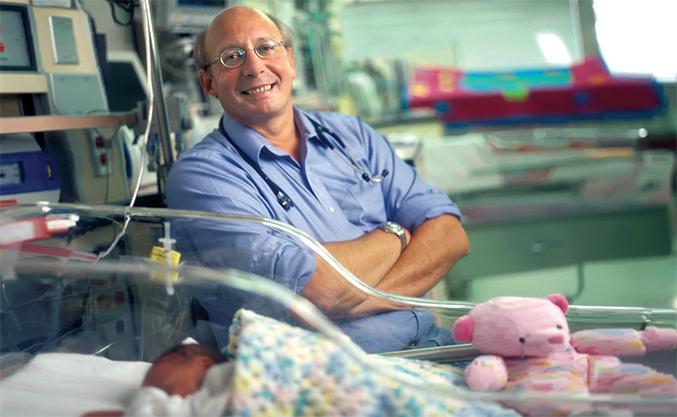
IMAGE: Jonathan Muraskas, MD, of Loyola University Medical Center led a study that found that most cases of brain-damaged newborns are not due to mismanaged deliveries.
Credit: Loyola University Medical Center
MAYWOOD, Ill. – A study by researchers at Loyola University Medical Center and Loyola University Chicago is providing new evidence that the vast majority of babies who are born with severe brain damage are not the result of mismanaged deliveries.
Lead author Jonathan Muraskas, MD, and colleagues examined the medical records of 32 full-term infants who developed severe cerebral palsy and mental retardation. The records indicate that this brain damage occurred after the babies were born, and despite proper resuscitation.
The study is published in the Journal of Perinatology
"All too often in cases of professional liability, the focus is on the last two hours of a normal 7,000-hour term pregnancy," Dr. Muraskas and colleagues wrote. "This study would support closer scrutiny of the first two hours [following birth] as a possible [cause] for non-preventable adverse neurological outcomes in newborns."
Dr. Muraskas is co-medical director of Loyola's neonatal intensive care unit and a professor in the Department of Pediatrics of Loyola University Chicago Stritch School of Medicine.
Out of every 1,000 full-term newborns, between one and three infants experience encephalopathy (disease in the brain), marked by impaired level of consciousness, seizures, difficulty breathing and depressed reflexes. While studies have found that only 8 percent to 14.5 percent of such cases are due to inadequate blood supply to the brain during delivery, the syndrome remains a leading cause of allegations of mismanagement by obstetricians.
The cases Dr. Muraskas examined included 18 newborns with an infection called chorioamnionitis and 14 newborns with severe anemia.
Chorioamnionitis occurs when bacteria infect the membranes that surround the fetus and the amniotic fluid in which the fetus floats. Anemia is due to an insufficient amount of blood in the baby after birth. Both conditions are difficult to detect prior to birth.
Medical records examined in the study showed that the gases in the umbilical cord blood of these newborns were normal, and there was little injury to the brains' deep gray matter. These and other indicators strongly suggest that the babies had not suffered brain damage before birth.
But once the babies were born, they were unable to cope on their own with the devastating effects of their infections or anemia. For example, babies infected by chorioamnionitis developed sepsis, an overwhelming immune response to infection that can cause tissue damage and organ failure. Severe cases of chorioamnionitis and anemia can impede delivery of oxygen to the brain and other vital organs. In such cases, even the best resuscitation efforts are unable to prevent severe brain damage, Dr. Muraskas said.
Despite appropriate obstetrical and pediatric-neonatal management, the presence of chorioamnionitis or fetal anemia can result in "devastating outcomes," Dr. Muraskas and colleagues wrote.
###
The study is titled 'The role of fetal inflammatory response syndrome and fetal anemia in nonpreventable term neonatal encephalopathy.'
Co-authors of the study are A.F. Kelly, MS Nash, Jean Goodman, MD, all of Loyola; and JC Morrison of the University of Mississippi Medical Center.
Loyola's 50-bed neonatal ICU cares for the sickest babies, offering the latest technology, therapies and techniques. It serves as a national model for special protocols and practices in the care of premature infants.
Media Contact
Jim Ritter
[email protected]
708-216-2445
@LoyolaHealth
http://www.luhs.org





